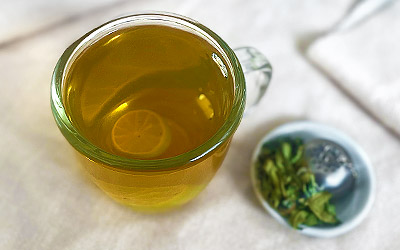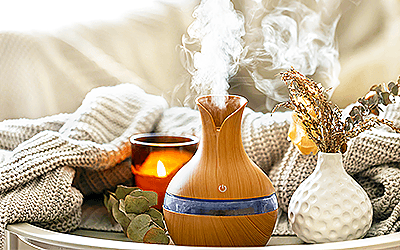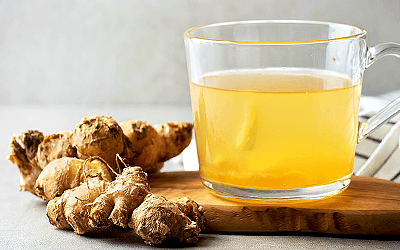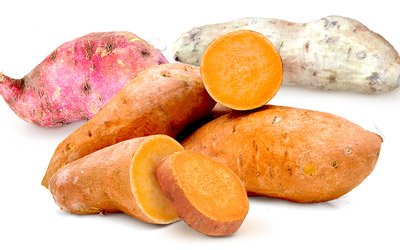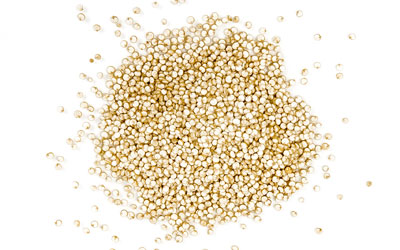Of all the lemon-scented herbs, lemon verbena has one of the strongest aromas. It gained popularity for this quality when introduced to Europe in the 18th century because it could be used as a flavoring substitute for the more scarcely available lemon. It has also been used commonly as a remedy for several different ailments, and its medicinal use continues today.
Lemon Verbena Medicinal Properties
Health Benefits of Lemon Verbena
The lemon verbena plant is noticeable for its strong lemon scent and flavor, but traditional usage and modern research also suggest that it can be used for:
Reducing joint and muscle pain. Pain and soreness due to inflammation or exercise can be alleviated using lemon verbena.
Treating anxiety and depression. Lemon verbena has sedative properties that not only can reduce feelings of anxiety, but also symptoms of depression.
Additionally, lemon verbena has been traditionally used for:
Relieving congestion and fever. Lemon verbena can relieve congestion from the common cold and helps induce sweating to break fevers.
Soothing abdominal discomfort. Several gastrointestinal conditions can be improved with the use of lemon verbena.
How It Works
Lemon verbena is able to reduce pain in the joints and muscles thanks to verbascoside, which reduces inflammation and improves joint flexibility. Lemon verbena extract has been shown to improve muscle soreness and reduce damage due to exercise.1
Lemon verbena contains high levels of polyphenols, flavonoids, tannins, and terpenoids; these compounds have been shown to exert antidepressant effects that match those of fluoxetine, a popular antidepressant medication.2
Additionally, the abundance of citral, limonene, and alpha-thujone in lemon verbena are thought to play a key role in the plant's medicinal properties, although their exact mechanisms of action are not yet fully understood.
Studies have suggested that lemon verbena's nonanal is the active component responsible for soothing abdominal distress and internal inflammation.3
Turmeric and devil's claw are herbs with strong anti-inflammatory properties, whereas lemon balm and lavender also have sedative, relaxant properties.
Lemon Verbena Side Effects
Lemon verbena is mostly safe for oral and topical consumption. The essential oil can cause skin redness or photosensitivity when applied externally and so should be diluted before use. It is also advisable to ingest lemon verbena preparations in moderation, as overconsumption of the herb may cause nausea.
Lemon Verbena Cautions
There are no known medical interactions with the lemon verbena herb. However, lemon verbena may worsen kidney disease, and it has been known to cause allergic reactions. Allergy symptoms include shortness of breath, chest pain, and hives or rashes. A doctor should still be consulted before beginning a regimen, particularly during pregnancy or breastfeeding.
- Medicinal action Anti-inflammatory, Sedative
- Key constituents Verbascoside, nonanal, polyphenols, flavonoids, tannins, and terpenoids
- Ways to use Capsules, Hot infusions/tisanes, Tincture, Powder, Essential oil, Dried
- Medicinal rating (4) Very useful plant
- Safety ranking Safety undetermined

How to Consume Lemon Verbena
Lemon verbena is popular for both its culinary and medicinal uses. Lemon-flavored jellies, cakes, drinks, and puddings often use this aromatic herb, and some of the benefits of lemon verbena may be obtained from these preparations, but they will be greatly reduced compared to those obtained from consuming the leaves in medicinal forms, intended for either internal or external use.
Natural Forms
Raw. Young uncooked lemon verbena leaves can be used in salads or sandwiches to add a lemony zest and obtain all of its four main health benefits. However, mature leaves may be too tough to be consumed raw.
- Dried. The dried leaves of lemon verbena can be added to sachets or used as a potpourri in order to release their soothing aroma.
Infusion. Lemon verbena infusion provides all of the herb's many health benefits. Its sedative property makes it an excellent choice of beverage before bed, while its anti-inflammatory benefits are useful for colds or upset stomachs. It can also be helpful to drink before or after intense exercise to prevent muscle pain.
Powder. Lemon verbena powder can be used to create tea or to flavor another beverage, and it provides all of the herb's health benefits.
Herbal Remedies & Supplements
Essential oil. This preparation should be used only externally. It can be diluted and applied directly to the skin near painful joints or muscles for relief, or it can be added to lotions for a similar effect. When diffused using aromatherapy lamps, lemon verbena oil provides calming benefits.
Tincture. A few drops of a lemon verbena tincture added to any beverage can help to calm an upset stomach or to bring on sleep.
- Capsules. Capsule forms contain fixed doses that can be easily consumed as a mild anxiety and digestive aid.
- Edible parts Leaves
- Edible uses Flavoring
- Taste Sweet, Mildly bitter

Growing
Thanks to its pleasant lemon aroma and its ability to attract pollinators like butterflies, lemon verbena is a favorite herb to grow in backyards and gardens. It is a perennial plant, but it requires some extra care to thrive year after year.
Growing Guidelines
Lemon verbena cuttings should be sown in light, well-drained, alkaline soils. Seeds may be used as well, although they are less likely to flourish in colder environments.
Cuttings or seeds should be placed three feet (1 m) apart for optimum growth.
The plant requires full sun and frequent moisture.
Lemon verbena leaves can be harvested any time after the plant reaches maturity.
Few pests or diseases attack the plant, but it may be susceptible to mites and whiteflies.
The lemon verbena plant cannot survive temperatures below 20°F (-7°C), and as such, it cannot survive winters in zone 8 or below. In cold environments, the plant can either be grown in a pot and brought indoors during the winter or treated as an annual.
In winter, even in warmer climates, the plant will lose its leaves. It should be cut back significantly at this point to ensure new growth in the spring.
Tendrils of the plant can be pruned to keep a manageable plant size. Some gardeners encourage cutting off new flower sprays to focus the plant's energy on its leaves.
Further information about growing lemon verbena can be found in the herb garden section.
- Life cycle Perennial
- Harvested parts Leaves
- Light requirements Full sun
- Soil Light (sandy), Well-drained
- Soil pH 7.4 – 7.8 (Slightly alkaline), 7.9 – 8.4 (Moderately alkaline)
- Growing habitat Temperate climates, Warm climates
- USDA Plant Hardiness Zones 8b, 9a, 9b
- Planting time Spring
- Plant spacing average 1 m (3.28 ft)
- Propagation techniques Cuttings
- Potential insect pests Aphids, Mealybugs, Whiteflies
- Potential diseases Stem rots
Additional Information
Plant Biology
Lemon verbena is a bushy, perennial deciduous shrub that can grow up to six feet (2 m) tall. It has strongly scented, lance-shaped leaves that grow in groups of three or four and can be from one to three inches (2 - 8 cm) long. Tubular flowers grow in small clusters and can range in color from white to a pale purple.
Lemon verbena, botanically known as Aloysia citriodora, is often called lemon beebrush or lemon vervain - vervain being a common variation of the Spanish verbena (along with the French verveine). The plant also has been reclassified several times over the course of history, and so it may be referred to in older sources as Lippia citriodora, A. triphylla, L. triphylla, Verbena triphylla, or Zappania citriodora.
Classification
Lemon verbena (Aloysia citriodora) is a member of the Verbenaceae family. This family is commonly called the verbena or vervain family, and it contains 35 different genera and at least 1,200 species.
Related Species
There are over 250 different species of plants that are called verbena, but unlike Aloysia citriodora, the majority belong to the genus named for them - Verbena. Aloysia citriodora is more commonly associated with Phyla dulcis, which is a plant used to relieve inflammation and treat coughs, and Lippia adoensis, an African herb used in tea. Though each of the three herbs has been classified into different genera under the contemporary classification system, they possess many similar properties.
Historical Information
Lemon verbena enjoyed its height of popularity during the 18th and 19th centuries in Europe. In 1784, it was brought to Spain from its native South America. It was easier to grow and cheaper to procure than lemons, so it became a common citrus substitute. Several popular Spanish and French beverages used the herb to provide flavor. However, it eventually lost its popularity and was replaced by lemongrass, a plant that has a similar lemon flavor and scent but was even cheaper to produce than lemon verbena.
Lemon verbena was named after Princess Louisa of Parma, wife of King Carlos IV of Spain, who was in power when the herb was brought to Europe. Its genus name, Aloysia, is a variation of Louisa, and in several languages, it is still colloquially called herb Louisa (or a corresponding translation).
Economic Data
Although a popular herb, lemon verbena is not a crop of much economic significance. Because there is little yield of oil compared to the volume of leaves, it is not a widely-grown crop globally. It is cultivated in South America, often for use as a culinary ingredient or tea, and mainly for its oil in Mediterranean Europe, North Africa, and Asia.
Popular Beliefs
In the past, lemon verbena was associated with holiness and was commonly believed to have the ability to ward off evil. Teas made from several different species of verbena plants were thought to provide protection against the devil, vampires, and other demonic entities.
Other Uses
Perfume and aromatherapy. strong lemony fragrance, manufactured by distilling oil from the plant's leaves, is a widely used ingredient in perfumes and aromatherapy products, including candles and diffusible oils.
Culinary. Lemon verbena leaves can be used to garnish fish and poultry dishes, usually as a substitute for lemon, and they are also commonly used as a flavoring agent.
Gardening. The lemon verbena plant is particularly attractive for gardeners, since its citrus scent attracts several different types of pollinators - notably, butterflies - that promote new growth.
Lemon verbena is a fragrant addition to any herbal garden. Moreover, the benefits of lemon verbena can be obtained from a number of different preparations, both medicinal and culinary.
- Other uses Perfume
Sources
- Briargate Botanicals, Aloysia triphylla
- Champagne-Urbana Herb Society, Herb of the Month: Vervain
- Culinary Herbs, pp. 145 - 147
- Essential Oils, p. 44
- Herbal: The Essential Guide to Herbs for Living
- Let's Get Natural With Herbs, p. 262
- Margaret Roberts' A-Z Herbs, p. 51
- The Encyclopedia of Herbs: A Comprehensive Reference to Herbs of Flavor and Fragrance, pp. 142 - 144
- The Herbfarm Cookbook, p. 201
- The Whole Herb, pp. 174 - 176
- What Can I Do with My Herbs?, pp. 86 - 87
- Encyclopedia of Herbal Medicine, pp. 227 - 228
Footnotes
- International Journey of Medical Sciences. (2021). Evaluation of the Efficacy of Supplementation with Planox® Lemon Verbena Extract in Improving Oxidative Stress and Muscle Damage: A Randomized Double-Blind Controlled Trial. Retrieved February 15, 2023, from: https://pubmed.ncbi.nlm.nih.gov/34104096/
- Basic and Clinical Neuroscience. 2020. Evaluating the Antidepressant Effect of Verbena officinalis L. (Vervain) Aqueous Extract in Adult Rats. Retrieved February 15, 2023, from: https://www.ncbi.nlm.nih.gov/pmc/articles/PMC7253814/
- Iranian Journal of Basic Medical Sciences. (2020). Gastroprotective effects of both aqueous and ethanolic extracts of Lemon verbena leaves against indomethacin-induced gastric ulcer in rats. Retrieved February 15, 2023, from: https://www.ncbi.nlm.nih.gov/pmc/articles/PMC7811806/
